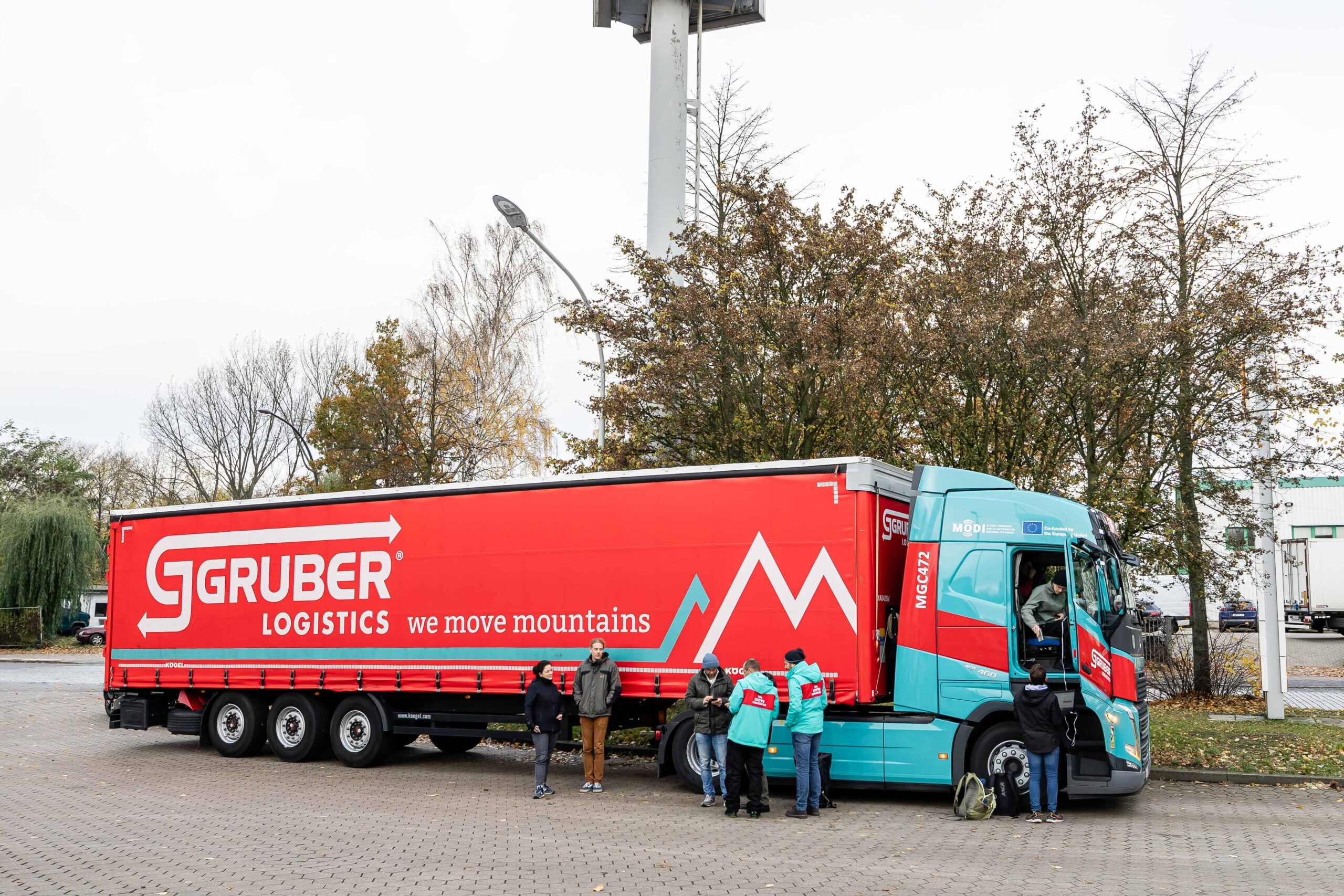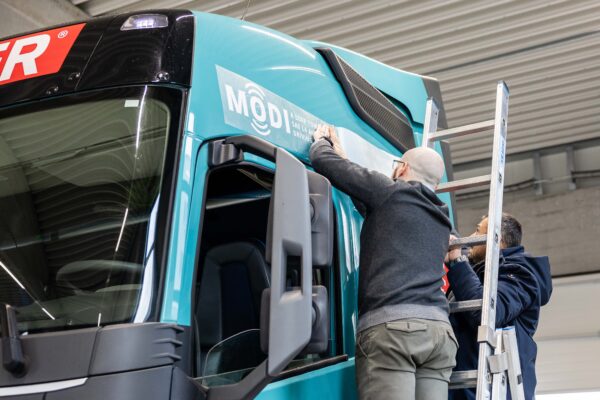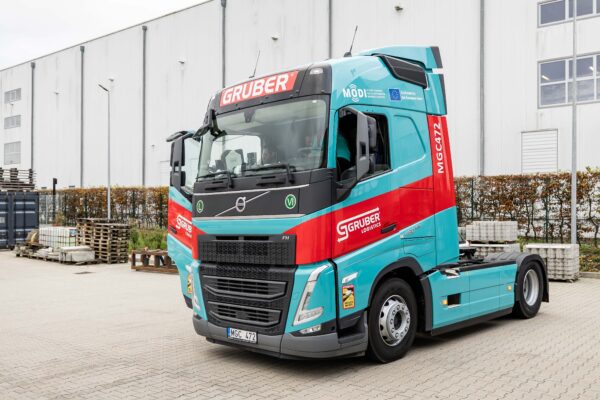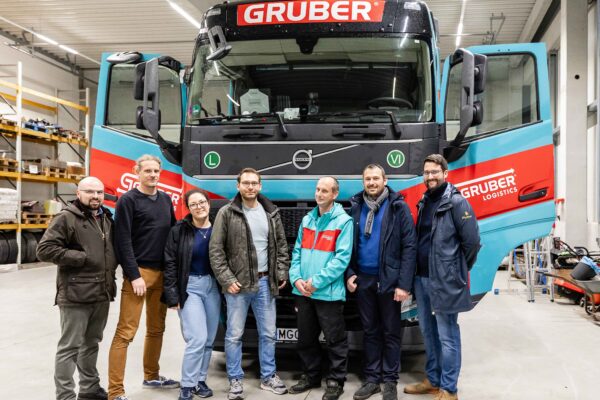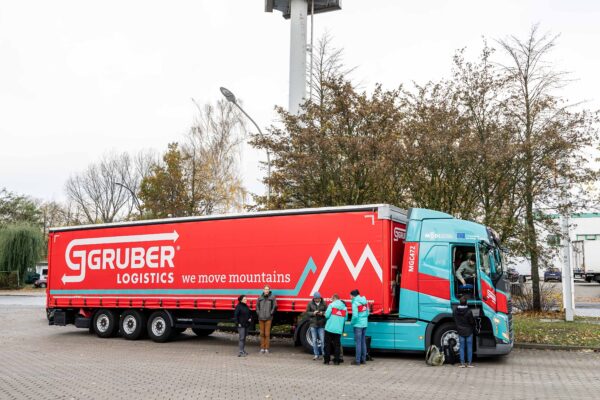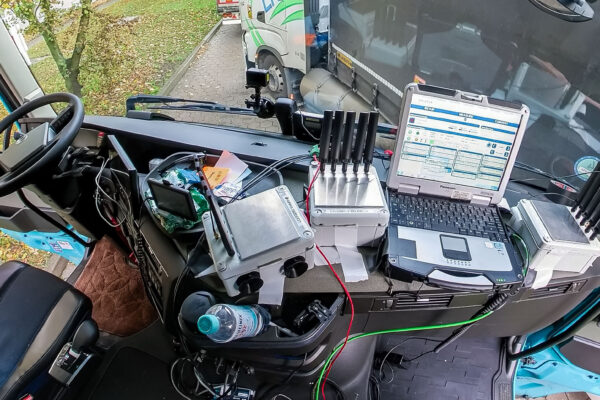Gruber Logistics partecipates in test project for autonomous trucks in Hamburg
The city of Hamburg is going to become one of the first place for testing autonomous technology for Heavy Duty Vehicles in Europe The four-year EU co-funded MODI project, is aiming to accelerate the introduction of Connected, Cooperative and Automated Mobility (CCAM) solutions to significantly improve logistic chains.
34 organizations from 8 countries started this year to test and validate the implementation of automated solutions. Gruber Logistics is leading this process for collecting relevant data for real-logistics operations During a reference test run in Autumn this year in the Hamburg Port area, a Gruber Logistics truck equipped many external devices conducted a digital scan of the city route collecting data on the interactions the truck has with its surroundings while driving.
The journey also provided information on whether and to what extent the physical and digital infrastructure along the route is suitable for highly automated driving. The in-depth analysis of this data now serves as a starting point for further optimization within the pilot project.
The Gruber Logistics truck examined in detail, for example, where and how the traffic flow on the existing infrastructure can be improved – be it in the port area itself or in the area of the highway entrances and exits. The measuring devices also identified potential danger spots for “vulnerable road users” such as pedestrians and cyclists, so that these can be eliminated, for example through infrastructure measures. The quality and coverage of the mobile phone network was also measured during the reference run. A good nationwide mobile network is essential for real-time data exchange between vehicles and infrastructure. Last but not least, the highly automated truck also analyzed the application of intelligent traffic systems for the functioning of autonomous freight transport. Some of these intelligent traffic systems are already being tested in Hamburg. They work on the basis of so-called V2X or “vehicle-to-everything” technology. This involves a vehicle networking with any device that it can influence or be influenced by, such as other vehicles, traffic lights or roadworks.
A further step is now planned for 2024 where Gruber Logistics will drive a highlight automated truck from Oslo to Rotterdam to expand the data collection in cross-border condition.
MODI aims to demonstrate the advantages of networked and autonomous mobility and emphasize their benefits for efficient and profitable logistics. To this end, the partners in the project are also addressing regulatory and infrastructural challenges along the logistics corridor from Rotterdam to Oslo with a stopover in Hamburg. The pilot project is funded by the EU and is a collaboration between industry and public partners. Participants include New Mobility Solutions Hamburg, Gruber Logistics, BASt, Volvo, DAF and the Free and Hanseatic City of Hamburg.
Insights into the Germany use case:
To summarize, we can already say: “It’s complicated”. Because Hamburg is an important hub for freight transportation in Europe and the world, the road traffic on the test route in and out of the port is correspondingly dense. Route planning is repeatedly made more difficult by obstacles such as road closures or traffic jams. Gaps in GNSS (global navigation satellite system) and mobile phone coverage in the urban environment are also possible. In plain language, this means that there are still some challenges to overcome on the road to automated and networked mobility. Gruber Logistics is proud to play its part in the successful implementation of the MODI pilot project.
Stay up-to-date with us! We will keep you informed here about the latest developments in the project and will present the results in words and pictures once they have been completed. Join us on a fascinating journey into the future of autonomous mobility.



